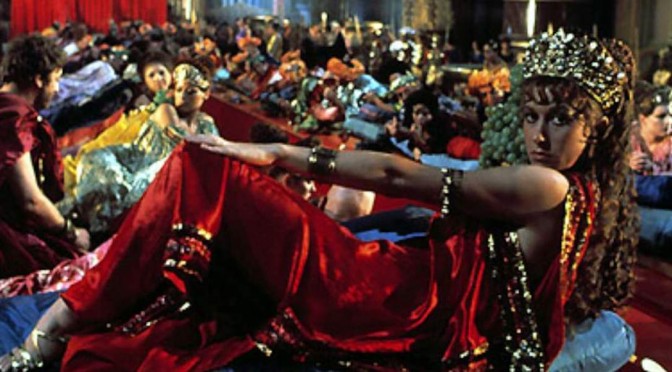Caligula
When Tiberius died in 37AD, Caligula became emporer. Caligula was bitterly attacked within Rome itself, but achieved wide acceptance in Gaul, because of his parentage. A delegation of British Kings came to Rome to pay homage to Caligula as High King, a nomination he graciously accepted. Whatever his supposedly depraved private life may have been, and we only have the stories told by his enemies, Caligula was murdered, with the agreement of the senate, for his attempts to reform the Empire to reduce the power of the senate and of the influence of the political system of Rome itself.
Claudius
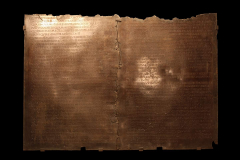 Fig 2 The Tablet of Lyon by which Claudius gave citizenship and power to the GaulsCaligula’s successor in 41AD was his uncle, Drusus younger son, Claudius, who had been born on the day of the inauguration of the Santuary of the Three Gauls.
Fig 2 The Tablet of Lyon by which Claudius gave citizenship and power to the GaulsCaligula’s successor in 41AD was his uncle, Drusus younger son, Claudius, who had been born on the day of the inauguration of the Santuary of the Three Gauls.
As Caligula had no heirs, Claudius was totally acceptable to the Celts. Claudius immediately took up the need make special recognition of the Gauls position. He made a speech to the senate, (a written version of which is now known as the Tablet of Lyon because a bronze copy was installed in the sanctuary of the three gauls), in which he recommended that wealthy Gauls should be allowed to become patricians and therefore become eligible to enter the senate.
The Conquest
.
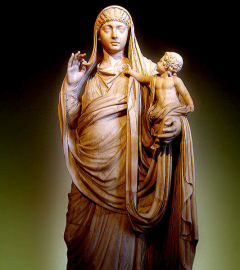 Fig 3 Messalina and Britannicus. The statue was a personal possession of Henry IV Of FranceIt was Claudius who extended Roman control to the British Isles, taking care to participate personally in one of the major battles so that his role as High King was clearly identifiable. Mysteriously Claudius promoted his stepson Nero as his successor in preference to his natural son, Britannicus. Britannicus retained support from the Celts but was murdered in AD 55, probably by Nero. This made Nero’s position totally unnacceptable to the Celts. and in 54 BC when Claudius died, again in suspicious circumstances, his place taken by Nero
Fig 3 Messalina and Britannicus. The statue was a personal possession of Henry IV Of FranceIt was Claudius who extended Roman control to the British Isles, taking care to participate personally in one of the major battles so that his role as High King was clearly identifiable. Mysteriously Claudius promoted his stepson Nero as his successor in preference to his natural son, Britannicus. Britannicus retained support from the Celts but was murdered in AD 55, probably by Nero. This made Nero’s position totally unnacceptable to the Celts. and in 54 BC when Claudius died, again in suspicious circumstances, his place taken by Nero
The Revolt
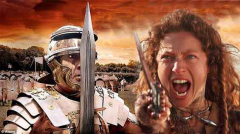 Fig 4 The Boudica RevoltThere were plots against Nero in Rome itself and in the east where the first jewish revolt took place in AD 66. Nevertheless it was in the celtic lands that his position was undermined.
Fig 4 The Boudica RevoltThere were plots against Nero in Rome itself and in the east where the first jewish revolt took place in AD 66. Nevertheless it was in the celtic lands that his position was undermined.
In AD 60 Boudica led a rebellion in Britain. which was put down with great ferocity. Then in the AD 68 Gaius Julius Vindex governor of Gallia Lugdunensis and himself a Celt from Aquitaine declared his opposition to Nero. The Vindex rising was put down but it lead to the overthrow of Nero.
In one year Galba, governor of Hispania Taraconensis, Ortho, Governor of Hispania Lusitania, Vitellius govenor of Germania Inferior all claimed to be Emporer. They all had celtic support of and Vitellus in particular had support from the entire gallic world. Thus in a space of nine years every province with a celtic tradition had rebelled against Rome.
Vespasian
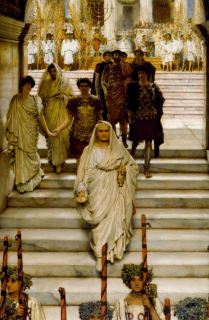 In contrast the eastern Part of the empire declared Vespasian, governor of Judea as emperor. Now a separation the separation of East and West was clearly demonstrated.
In contrast the eastern Part of the empire declared Vespasian, governor of Judea as emperor. Now a separation the separation of East and West was clearly demonstrated.
Having defeated Vitellius in battle, and because he had paid a significant role in Claudius’ invasion of Britain Vespasian was certainly eligable to be considered as High King . However,there was now no hereditary link to Octavian therefore Vespasian had to be challenged. Vespasian was however from Italy and had no credentials to present to the celtic world. With his appointment in AD 69 there was immediately a rebellion in Gaul headed by Julius Civilis, a batavian but supported throughout Gaul. This time the aim clearly was an independent gallic empire.
Vespasian dealt with rebellion firmly but fairly subsequently went to great lengths to pay attention to the Celtic world.
Agricola
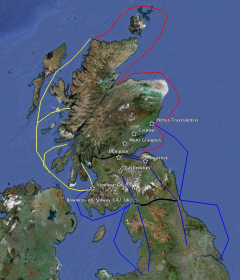 Fig 6 The battle for scotlandVespasian, his son Titus and younger son Domitian all placed emphasis on strengthening the Rhine frontier,and pushing the frontier in Britain further north. Under Titus and Domitian however the northward expansion was mainly in the hands of Agricola , who was born in Frejus, Gaul. Agricola had taken part in the suppression of Boudica’s revolt and had been governor of both Aquitania and Britain.
Fig 6 The battle for scotlandVespasian, his son Titus and younger son Domitian all placed emphasis on strengthening the Rhine frontier,and pushing the frontier in Britain further north. Under Titus and Domitian however the northward expansion was mainly in the hands of Agricola , who was born in Frejus, Gaul. Agricola had taken part in the suppression of Boudica’s revolt and had been governor of both Aquitania and Britain.
Agricola’s was governor of Britain from 77 to 85 and his activities earned him the grudging admiration of the celtic tribes. Within Britain he may well have been hailed as high king. After the death of Vespasian and Titus, Domitian campaigned in Gaul and across the Rhine frontier, possibly against “phantom” enemies. In particular his war against the Chatti was “fought” without A single battle.
Agricola was recalled from Britain abruptly. Aware of Agricola’s profie, Domitian saw him as a potential rival.
